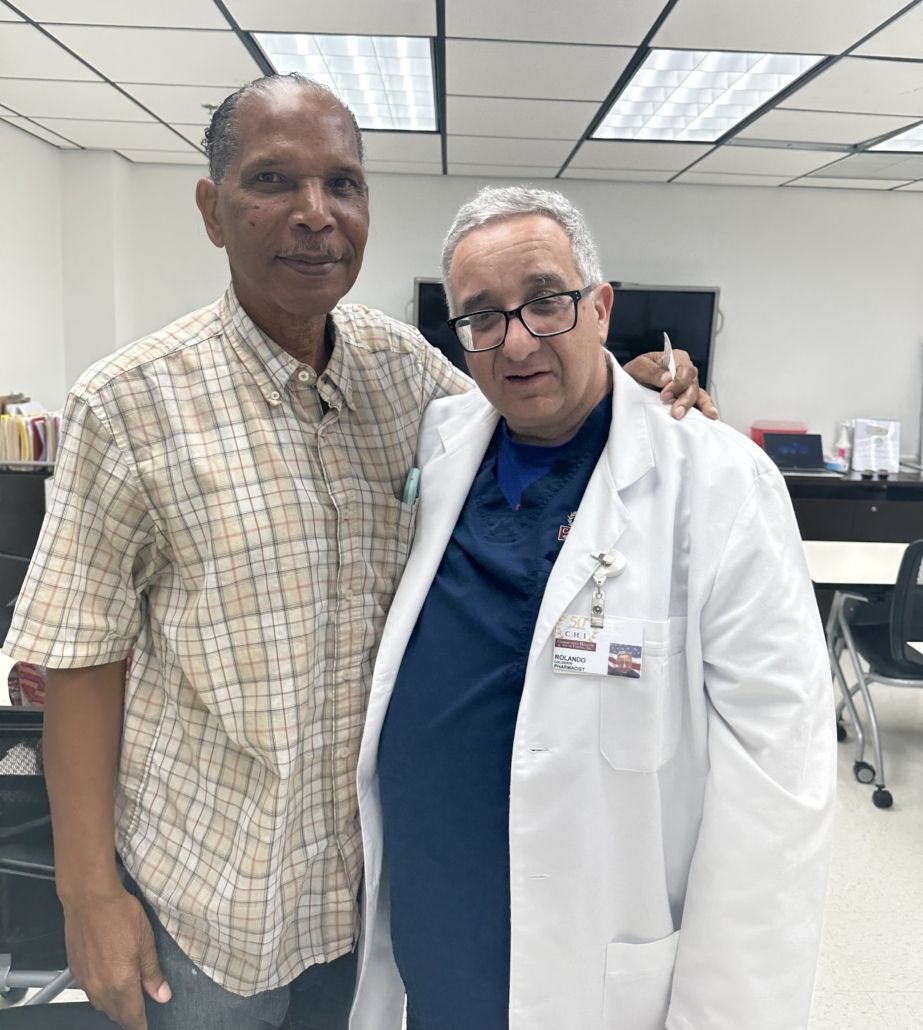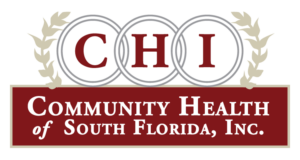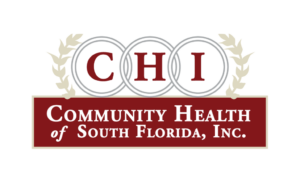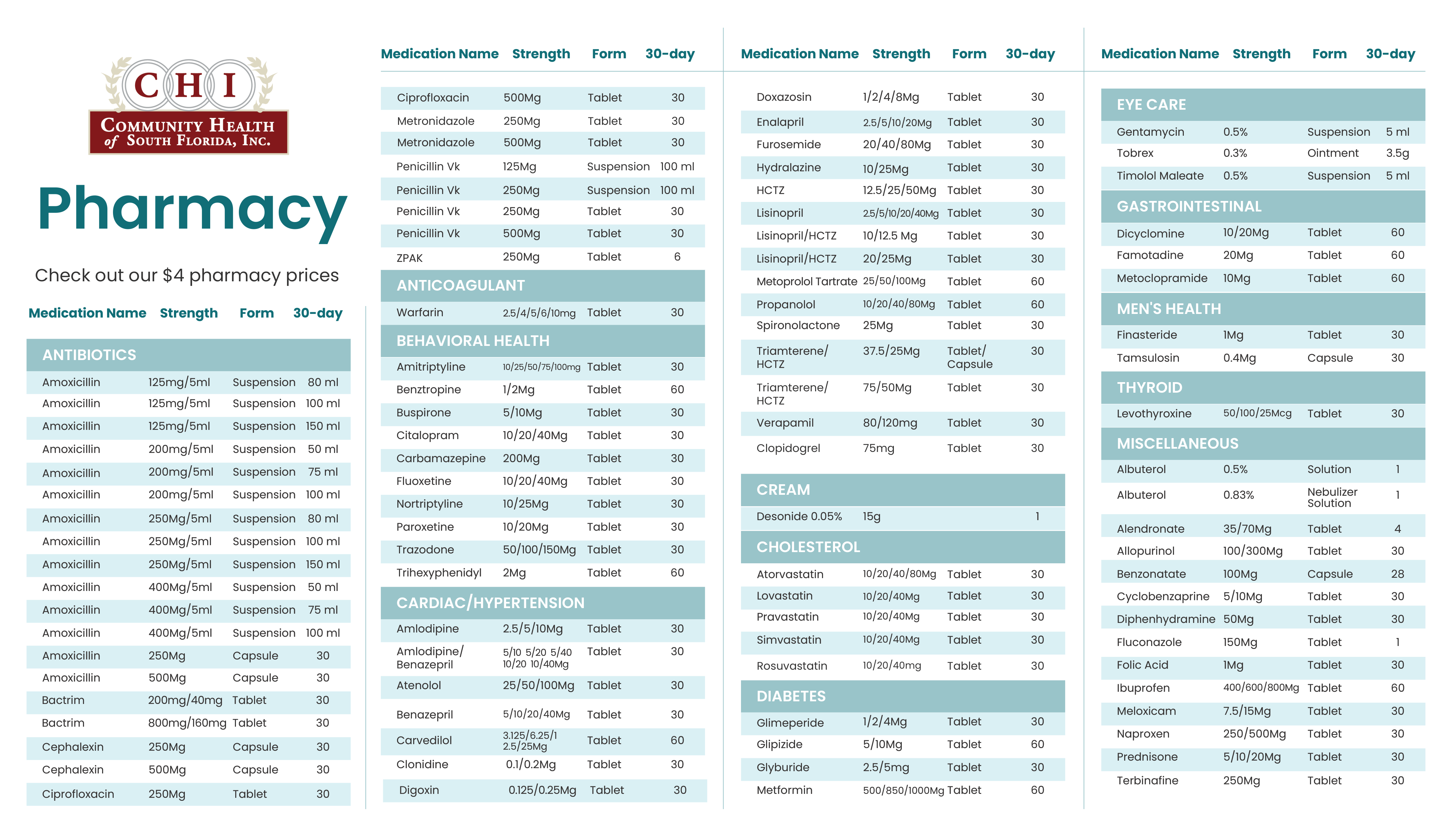Beyond Medications: CHI’s Warfarin Clinics Prioritize Health and Community Ties
Haga clic en la bandera en parte superior de la página para traducir al español
Pezé sou drapo anwo paj la pou Kreyol

Dr. Rolando Caldrin and patient Karl Mills at one of CHI’s monthly Warfarin clinics
Throughout the years, Rosa Jackson Sneed has become well acquainted with Warfarin, an anticoagulant medication that she has relied on since 1999 due to a longstanding history of blood clots. The medicine prevents her blood from clotting, which could lead to death. Understanding the crucial part that Warfarin plays in maintaining her overall health, Sneed turns to Community Health of South Florida, Inc. (CHI) for healthcare support. For more than ten years, CHI has had monthly clinics for patients taking Warfarin and other anticoagulants. These sessions provide education and create a sense of community among the patients. Actively participating in these clinics at the Doris Ison Health Center, Sneed ensures her well-being through ongoing participation.
“I have been with CHI for years and coming to this clinic for the longest,” Sneed said. “It has been a help. We get our blood checked at the same time and come to class. It has been very beneficial.”
At the November session, Sneed was among a handful of patients in the room who completed lab work and took to their seats for the education portion of the program. CHI pharmacists and pharmacy students addressed their concerns and provided information for treatment options.
Patient laboratory results are then closely monitored by pharmacists and doctors. The goal is to check patients on the spot and adjust their treatment plans immediately. “If their test shows us that their levels are high, they will have bleeding issues,” said Dr. Rolando Caldrin, a CHI pharmacist. “If their levels are low, they will have blood clots. That’s why we adjust it on the spot.”
CHI Director of Pharmacy Services, Dr. Samuel James, who has played a role in this initiative, recognizes that although this is a challenging time for the patient, he is grateful that they have access to services like these.
“They come to this class for us to help them stay healthy and we adjust their treatment based on what levels are on the test,” he said. “It has become a small little community. It gives some of these patients who have nobody to talk to, an opportunity to talk to each other and feel better about their situation.”
Dr. Caldrin reflected proudly on more than a decade of collaboration between CHI clinicians. A program that started as a mere concept, has now expanded to 50 patients in the group.
“We have a whole policy and procedure that was created just for this class,” Dr. Caldrin said. “The idea is both compliance and education, so the patient can—to a certain point—fend for themselves. It has been successful!”





